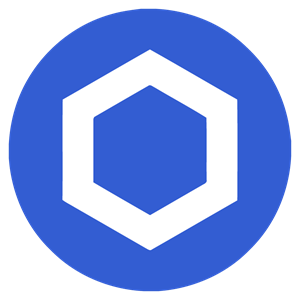
Chainlink
Chainlink is a decentralized oracle network that bridges the gap between blockchain applications and real-world data. It enables smart contracts to securely interact with external data sources, ensuring the reliability and integrity of decentralized applications.
Categories:
Data Economy
Oracle
Updated:
2023-07-31
Tags:
Cross-Chain
Ticker:
$LINK
Token Strength.
Token Utility:
Fee Token: $LINK serves as the primary fee token within Chainlink's ecosystem. Users utilize $LINK tokens to access and acquire valuable data from the network. Staking for Node Operations: To become a Chainlink node operator and participate in the network's decentralized oracle infrastructure, individuals are required to stake a certain amount of $LINK. This stake acts as collateral and ensures the integrity and reliability of its services. Community Staking and Auto-Delegation: Apart from node operators, community members also have the opportunity to stake their $LINK tokens. These staked tokens are automatically delegated to eligible node operators, further strengthening the network's decentralization and encouraging active participation from the community. Collateral for DeFi Loans: $LINK can be used as collateral to secure loans within the decentralized finance (DeFi) ecosystem. By pledging their $LINK tokens as collateral, individuals can access borrowing options and unlock liquidity while retaining ownership of their assets. This use case expands the utility of $LINK and enhances its role as a valuable asset within the DeFi space.
Demand Driver:
Demand for Decentralized Oracles: With the increasing demand for trustworthy and authenticated data within blockchain applications, there is a growing need for Chainlink's robust oracle solutions. This surge in demand for Chainlink's oracle services drives the corresponding need for $LINK tokens, which are utilized as a means of payment to access and utilize these reliable data services. Integration into DeFi Ecosystem: Chainlink has become a fundamental component of the decentralized finance (DeFi) ecosystem. Many DeFi protocols rely on Chainlink's oracles to access external data for functions such as price feeds, lending/borrowing rates, and more. As the popularity and adoption of DeFi projects rise, the demand for $LINK tokens increases to access and utilize Chainlink's oracle services. Node Operation and Staking: To become a Chainlink node operator and participate in the network, individuals need to stake a certain amount of $LINK tokens. This requirement creates demand for $LINK tokens as aspiring node operators acquire them to fulfil the staking criteria and take part in the network's decentralized oracle infrastructure.
Value Creation:
Chainlink's value creation lies in its ability to bridge the gap between blockchain networks and the real world, enabling smart contracts to access reliable, verifiable, and accurate data. By providing a decentralized oracle network of independent node operators, Chainlink ensures data integrity, security, and decentralization within decentralized applications. Its value proposition centers around empowering developers to build advanced and sophisticated applications that can securely interact with external data, driving innovation and adoption across various industries.
Value Capture:
Value Accrual to Protocol: Fees and rewards are entirely earned by the Service Providers, primarily the Oracle Nodes. Value Accrual to Token: $LINK is used to pay for services on the Chainlink network and thus the Equation of Exchange suggests that the token price rises with increasing transactional volume, considering the total $LINK supply remains the same, as well as the average holding period of $LINK.
Business Model:
Revenue comes from:
- dApps:
- Chainlink BUILD Fees
- Revenue Sharing
- Blockchains:
- Chainlink SCALE Fees
Revenue is denominated in:
- Primarily in $LINK
Revenue goes to:
- Node Operators
Loading
Protocol Analysis.
| Problems & Solutions | Problems: - Oracle Problem: Blockchain networks face challenges in connecting with external data sources, known as the "oracle problem." - Data Reliability: Ensuring reliable and accurate data for smart contracts is crucial in decentralized applications. - Decentralization and Security: Centralized oracles pose single points of failure, compromising the decentralized nature of blockchain applications. Solutions: - Solution to Oracle Problem: Chainlink provides a decentralized oracle network of independent node operators to securely fetch real-world data and deliver it to smart contracts. - Enhancing Data Reliability: Chainlink's decentralized oracle network sources data from multiple independent nodes, enhancing reliability through consensus-based aggregation. - Decentralization and Security: Chainlink's decentralized oracle network fosters a diverse ecosystem of independent node operators, increasing network security and reducing centralization risks. |
|---|---|
| Predecessors | - Band Protocol - DIA (for financial data) - API3 |
Investment Take
... coming soon
Tokenomics Timeline.
2017-09-18
Public Sale
Public Token Sale
2021-04-15
Chainlink 2.0
Publishing the Whitepaper of Chainlink 2.0
Loading
Loading
Loading
Ecosystem Users.
| Name | Role | |
|---|---|---|
| Alerter | Alerters are stakeholders who actively monitor the performance of node operators. Their primary objective is to ensure that node operators fulfil their obligations as agreed upon within the network. For doing, they must stake some $LINK and in can earn $LINK in return. | |
| Community Staker | Community Stakers delegate their staked $LINK to selected Oracle Nodes. | |
| dApps | Data Providers contribute their data to the network. They can either become a Node Operator bringing their data on-chain themselves or simply provide their API to other Node Operators. | |
| Node Operator | Oracle Nodes play a crucial role in the Chainlink network, serving as intermediaries between (off-chain) data sources and smart contracts of dApps. Each Oracle Node stakes a certain amount of $LINK tokens as collateral, guaranteeing reliable, honest, and high-quality performance. |